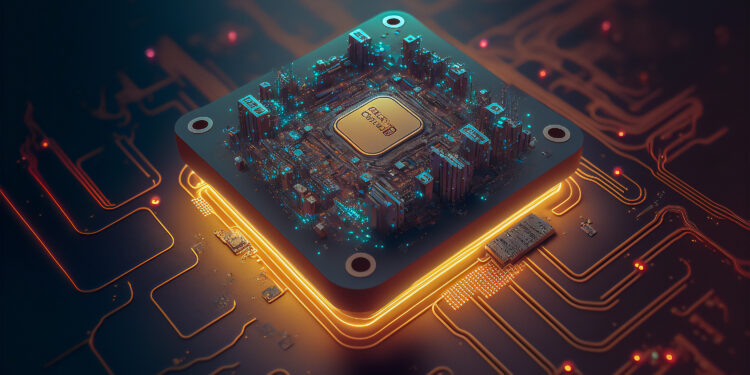Nvidia Ante AI Chip Game, a pioneer in graphics processing units (GPUs), has recently unveiled its latest innovation in the field of artificial intelligence (AI) chip technology – the Blackwell Architecture.
Evolution of AI Chip Technology
Over the years, AI chip technology has undergone significant evolution. It started with the utilization of central processing units (CPUs) for basic AI tasks. However, the demand for faster processing led to the development of graphics processing units (GPUs), which excelled in parallel processing, making them ideal for AI computations. Now, with the advent of AI-specific chips, such as Nvidia’s Blackwell Architecture, the landscape of AI hardware is evolving even further.
Challenges in AI Chip Design
Designing AI chips poses several challenges, including power efficiency and performance scalability, Traditional CPUs and GPUs often struggle to meet the power demands of AI workloads efficiently, leading to increased operational costs and environmental concerns. Additionally, as AI models become more complex and data-intensive, there is a growing need for chips that can scale performance without compromising efficiency.
Features of Nvidia’s Blackwell Architecture
Nvidia Ante AI Chip Blackwell Architecture addresses these challenges with its innovative design features, It offers unparalleled scalability, allowing for seamless integration into a variety of computing environments, from data centers to edge devices. Moreover, its energy-efficient design ensures optimal performance while minimizing power consumption, making it ideal for both large-scale AI deployments and mobile applications.
Applications of Blackwell Architecture
The versatility of Nvidia Ante AI Chip, Blackwell Architecture opens up a myriad of applications across industries. In data centers, it can accelerate AI training and inference tasks, enabling faster insights and decision-making. At the edge, it powers intelligent devices such as autonomous vehicles and smart sensors, enabling real-time processing of data without relying on cloud connectivity.
Impact on AI Industry
The introduction of Nvidia’s Blackwell Architecture marks a significant milestone in the AI industry. It not only raises the bar for performance and efficiency but also drives innovation and competition among chip manufacturers. As businesses increasingly rely on AI for various applications, the demand for high-performance AI chips like Blackwell Architecture is expected to soar.
Comparison with Competing Architectures
While Nvidia’s Blackwell Architecture sets new standards in AI chip design. it faces competition from other industry players such as Intel, AMD, and Google. Each company offers its own AI chip solutions with unique features and capabilities. However, Nvidia’s track record in GPU technology and its commitment to AI research give Blackwell Architecture a competitive edge in the market.
Future Prospects of Nvidia’s Blackwell Architecture
Looking ahead, the future of Nvidia’s Blackwell Architecture seems promising. As AI continues to permeate various aspects of our lives, the demand for efficient and powerful AI chips will only grow. With ongoing research and development efforts, Nvidia is poised to further enhance the capabilities of Blackwell Architecture, driving innovation and shaping the future of AI technology.
Conclusion
Nvidia Ante AI Chip Game Blackwell Architecture represents a significant advancement in AI chip technology. Its scalability, energy efficiency, and performance improvements make it a game-changer in the AI industry. With its wide range of applications and potential for future innovation, Blackwell Architecture is set to revolutionize the way we leverage AI in computing.













































